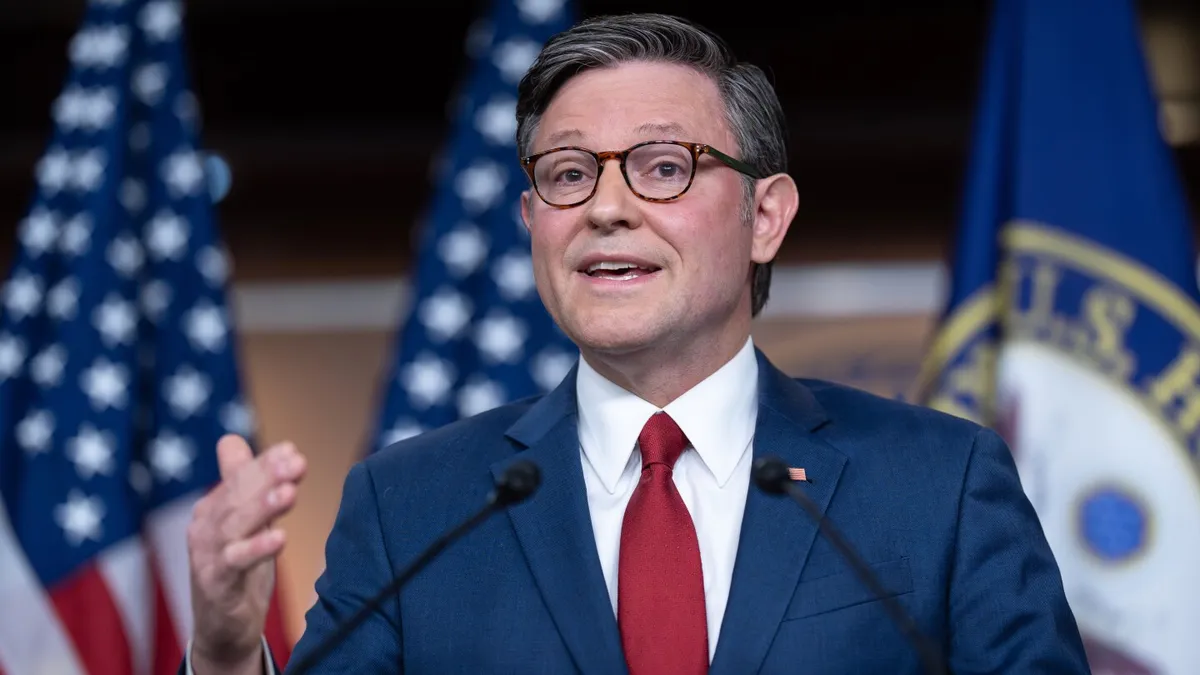
On Wednesday, House lawmakers made a highly anticipated return to the nation’s capital after an extended recess of nearly eight weeks. Their primary objective is to potentially resolve the longest federal government shutdown in U.S. history. The House is set to consider a bill aimed at reopening the government, a measure that received approval from the Senate on Monday night. President Donald Trump has characterized this bill as a “very big victory” for the administration.
As lawmakers prepare for the vote, there are concerns that travel delays caused by the ongoing shutdown could complicate the proceedings. Nevertheless, House Speaker Mike Johnson expressed optimism about the outcome, stating, “We think this is going to happen and we’re sorry it took this long.” Johnson, a Republican from Louisiana, spoke to reporters about the urgency of the situation, noting that the House has not been in legislative session since September 19, when it passed a temporary measure to keep the government open as the new budget year commenced.
In the wake of this extended absence, Johnson had previously sent lawmakers home, placing the responsibility on the Senate. This decision drew criticism from Democrats, who accused Republicans of taking a vacation while federal workers went without paychecks, travelers faced airport delays, and essential food assistance benefits expired.
Despite efforts to move forward, the vast majority of Democratic lawmakers are expected to oppose the bill. Their primary concern is the lack of an extension for Affordable Care Act tax credits, which are set to expire at the end of the year and are crucial for making health coverage more affordable. Democratic leader Hakeem Jeffries of New York voiced strong opposition, stating, “We cannot support the Republican effort to gut the health care of the American people.”
The proposed legislation has garnered support from eight senators who broke ranks with their party, acknowledging that Republicans would not agree to use government funding to extend health care tax credits. As the toll of the shutdown continues to grow—marking Day 43 on Wednesday—the compromise aims to fund three annual spending bills and extend the rest of the government funding until January 30. Although Republicans have promised a vote by mid-December to extend health care subsidies, skepticism remains about the chances of success.
Sen. Jeanne Shaheen, a Democrat from New Hampshire, remarked, “We had reached a point where I think a number of us believed that the shutdown had been very effective in raising the concern about health care.” She noted that the promise of a future vote could provide an opportunity to address health care issues moving forward.
The bill includes significant provisions, such as reversing the firing of federal workers that occurred since the onset of the shutdown. It also safeguards federal employees from further layoffs through January, ensuring they receive their pay once the shutdown concludes. Notably, the legislation secures funding for critical food assistance programs, ensuring uninterrupted benefits for those who rely on them.
Additionally, the package allocates $203.5 million to enhance security for lawmakers and an extra $28 million for the security of Supreme Court justices. Democrats are also focusing on language in the bill that would allow senators to sue if a federal agency or employee searches their electronic records without notification, potentially leading to damages of up to $500,000 for each violation. Some Democrats have called for the removal of this provision, which appears to be aimed at helping Republican senators pursue damages related to investigations into former President Trump’s actions following the 2020 election.
Republican Representative Tom Cole of Oklahoma criticized Democrats for blaming the GOP for the expiring health insurance tax credit, stating, “It’s a subsidy on top of a subsidy. Our friends added it during COVID.” He emphasized that the decision on the expiration date was made without any Republican votes.
Many Democrats view the impending passage of the spending bill as a mistake. Senate Democratic leader Chuck Schumer expressed disappointment, stating that the bill “fails to do anything of substance to fix America’s healthcare crisis.” Independent Senator Bernie Sanders of Vermont echoed these sentiments, calling the decision to move forward a “horrific mistake.”
As the December vote approaches, it remains uncertain whether the two parties will find common ground on health care. Speaker Johnson has not committed to bringing the issue to a vote in the House. Some Republicans have indicated a willingness to extend the pandemic-era tax credits, especially given the potential rise in premiums for millions of Americans. However, they are also advocating for new income limits on eligibility for these subsidies.
Senator Susan Collins of Maine, chair of the Senate Appropriations Committee, expressed support for extending the tax credits with specific changes, suggesting that some Democrats might be open to similar adjustments. “We do need to act by the end of the year,” Collins stated, emphasizing the urgency of the situation.
House Democrats, however, remain skeptical about the Senate’s efforts leading to any significant breakthroughs, with Representative Rosa DeLauro of Connecticut asserting that Republicans have long sought to repeal health care reforms. “That’s where they’re trying to go,” she concluded.